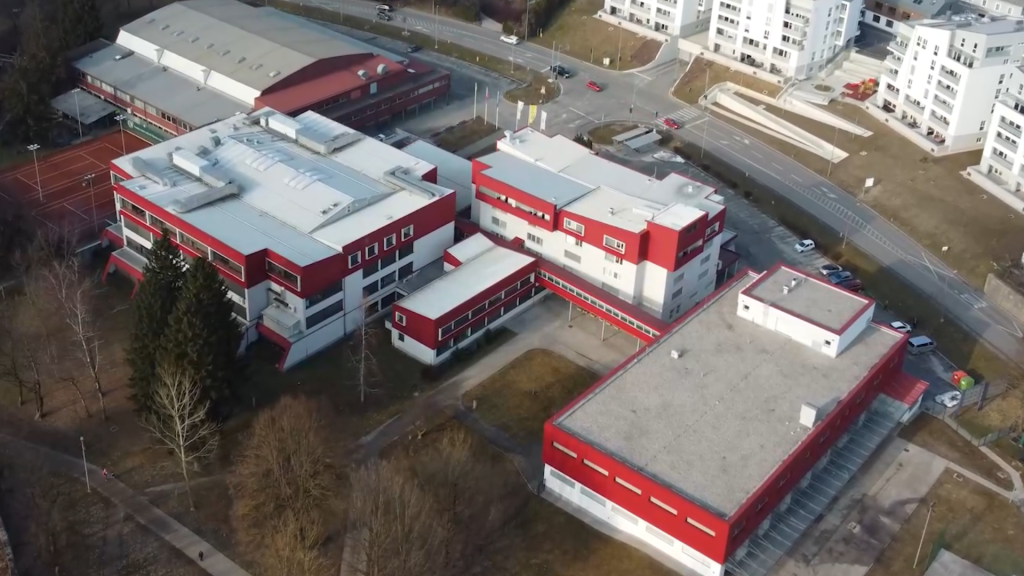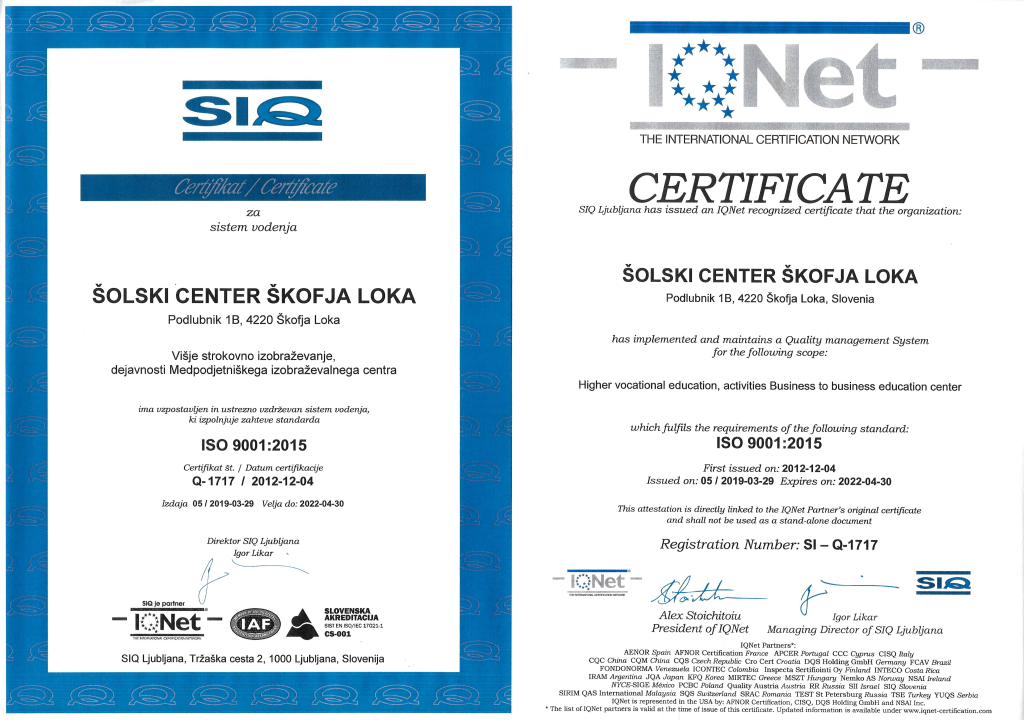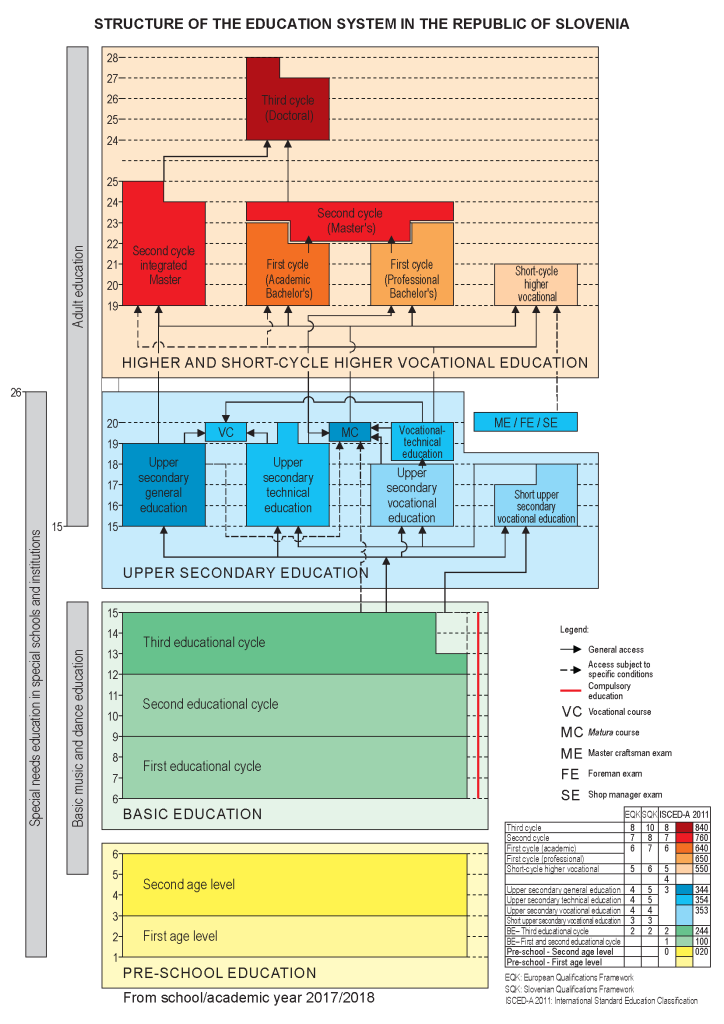College
Vocational College of Mechanical and Wood Engineering

Who we are
- SCHOOL CENTRE ŠKOFJA LOKA, Vocational College of Mechanical and Wood Engineering
- study of mechanical engineering and wood engineering
- full-time and part-time study
- professional vocational education in Škofja Loka since 1889
- vocational college since the academic year 2004/2005
Mission and Vision
- being recognized as a quality institution educating young people and adults in higher vocational education in mechanical engineering and wood engineering
- adapting to changes in the environment by updating and developing educational programmes
- participating in development projects with companies
- encouraging excellence in all fields of our activity

Why higher vocational education

Course of study
Lectures
presentation and interpretation of the study materials
Seminar exercises (compulsory)
- seminar exercises: group work in lecture rooms involving a lecturer or instructor and students
- laboratory work: practical examples with calculations, use of various computer software, laboratory and measuring equipment, machine tools and other devices
Online classrooms
- basic source for study materials: notes and summaries of lectures, instructions and materials for exercises
- submission of seminar papers, reports and presentations
Library
professional literature, manuals, journals, materials available online
Praktično izobraževanje
Scope
- 40% of total study obligations
- 400 hours of work in a company in each academic year
Place
- in a company and with the participation of a mentor.
Purpose
- implementing and upgrading knowledge and skills in the entrepreneurial environment
- learning about key processes in a company
- being able to transfer knowledge into practice.
- meeting (potential) employers
Objectives
- selection and processing of the topic for the diploma thesis.
- employment
Project work
Forms of practical training
- is performed at school to the same extent as practical training
- international projects in cooperation with schools, institutions and companies from Slovenia, Germany, Italy
Successful actual projects
- VACIDE Project – the Thor robot
- construction and manufacture of a six-axis robot
- 3D scanner usage and reverse engineering
